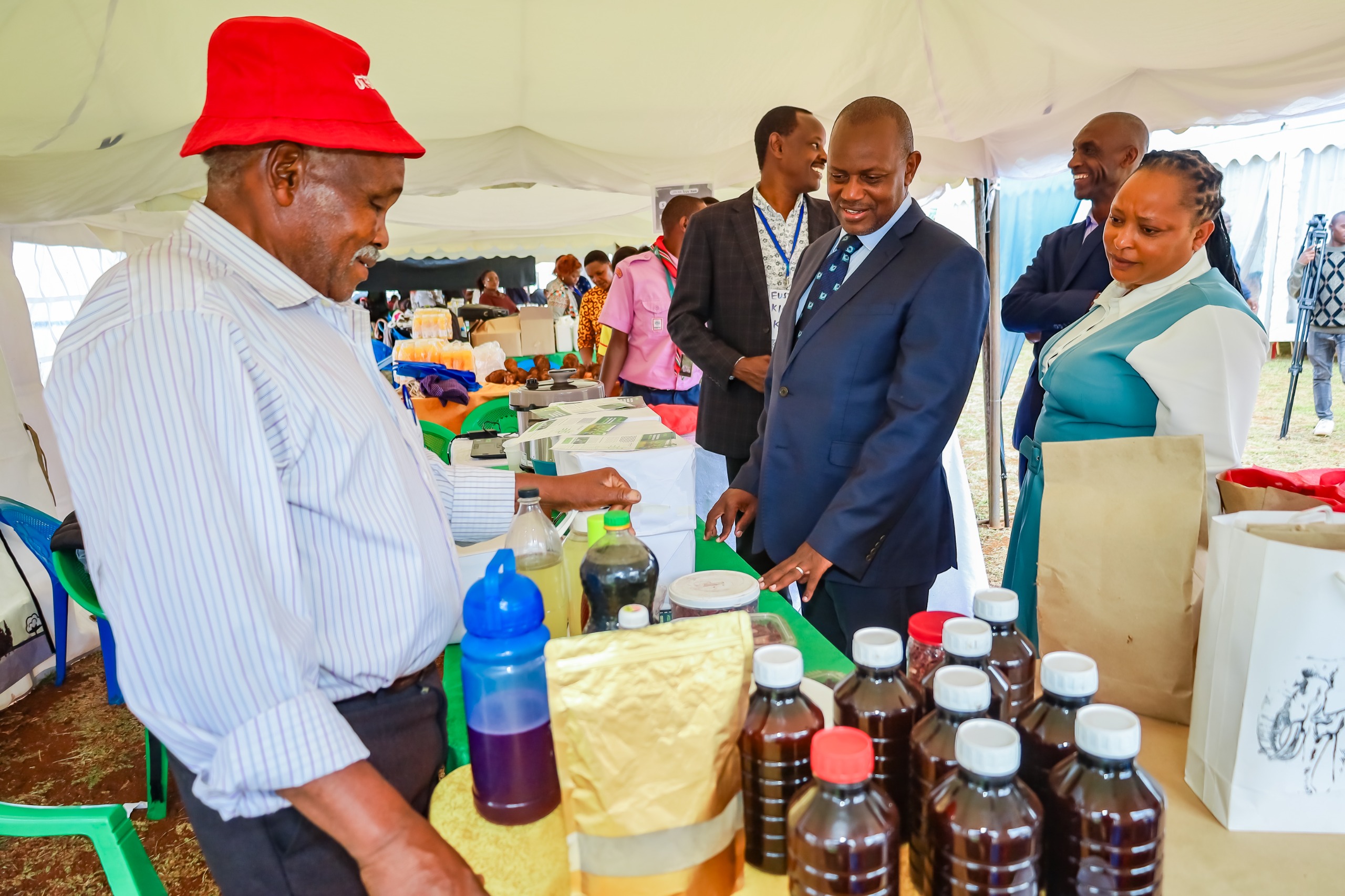
The Kirinyaga government has taken a bold step towards safer and more sustainable farming by hosting its first-ever agroecology symposium.
The two-day event, held at Kirinyaga University in Kutus, seeks to promote farming and consumption of organically grown food for commercial and health benefits.
The symposium is part of a campaign by the county to encourage reduction in the use of agrochemicals in crop production in the wake of rising health concerns.
The symposium brought together more than 700 participants, including farmers, agricultural experts, exhibitors, buyers and input suppliers.
Sessions focused on practical aspects of organic farming such as pest management, soil health and market access.
Governor Anne Waiguru earlier said her administration is committed to helping farmers adapt to changing weather patterns while reducing reliance on agrochemicals due to health concerns.
“We are undertaking farmers’ training on organic farming because we want to reduce the use of agro-chemicals,” she said.
She said organic farming supports food safety, public health and environmental conservation.
Waiguru said the county is undertaking training aimed at mitigating the potential negative impacts of chemicals in humans and the environment.
The training is targeting horticulture farmers, especially those engaged is tomatoes, french beans and rice production.
The farmers, organised in 14 groups, have been federated into a cooperative, which is helping them tap into the growing market while at the same time offering them financial support to expand their ventures.
Agriculture executive John Gachara described the event as a milestone in the county’s transition to agro ecological farming.
“We are proud to host the first organic farming symposium in Kirinyaga. Our focus is to encourage farmers to embrace organic methods in response to the health and environmental challenges posed by chemical-based agriculture,” he said.
Gachara warned that misuse of pesticides contribute to the rise in lifestyle-related illnesses, saying the county is promoting biodegradable alternatives to protect farmers and consumers.
“Our goal is to lower medical burden arising from use of agro-chemical,” he said.
The symposium was organised in partnership with the Kenya Organic Agriculture Network (Koan).
“We are pleased to have partnered with Kirinyaga county to organise this symposium that brought together stakeholder including farmers, companies, input suppliers and extension providers,” said Koan manager Austace Kiarie.
He said the platform allowed farmers to explore innovative solutions in soil fertility and pesticide management while exchanging ideas and experiences.
Alex Muriithi, founder of Super Ideal Farming Group, said his organisation has been training farmers in Kirinyaga on the use of organic foliar fertilisers.
“These fertilisers help reduce crop diseases and are healthier for our bodies,” he said.
Kiaries said the group uses locally available materials, reducing waste and cutting production costs. “Mast farmers have now embraced organic farming,” he said.
Agro ecology expert Gideon Moya from Biba Kenya also praised the event. He said they had supported 10-member organisations from across the country to participate.
“We are huge promoters of agro ecology, we train small-scale farmers on safe production methods by discouraging toxic pesticides and promoting indigenous farming through our campaign dubbed “Kula Kienyeji”," he said.
Moya said growing indigenous crops is one way to protect the environment from climate change and reduce the risk of terminal illnesses linked to chemical exposure.
Jane Muchiri, a member of the Mountain Green Group and an organic farmer, shared how she transformed her farming practices after realising the effects of chemicals on soil and health.
“The chemicals we used were destroying the soil microorganisms that maintain fertility, they are absorbed by the crops, and eventually we consume them, this is why diseases are increasing,” she said.
















